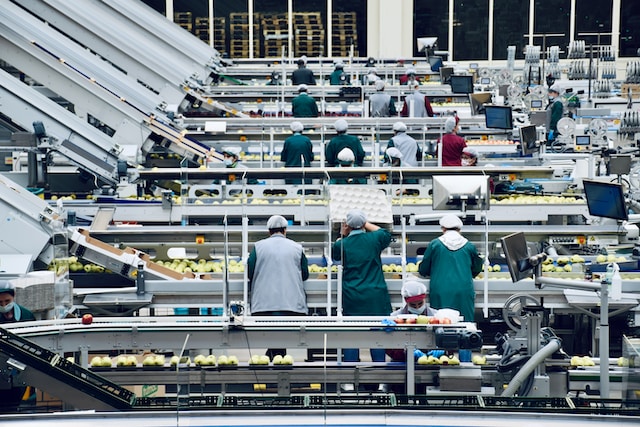The food and beverage manufacturing industry is an important part of the economy of any developed country. In America, it is estimated that this sector of industry accounts for around 5% of the total GDP of the country and employs hundreds of thousands of staff in a wide range of occupations.
The mass production of food and beverage products supports a growing population and ensures that people have access to competitively priced produce. In any food or beverage manufacturing facility, there is a need to ensure that the highest possible levels of output are produced. This helps to keep unit costs down per item and drives the overall profitability of the company.
In this guide, some of the key ways in which food and beverage firms ensure that their production lines operate to high levels of efficiency will be explored.
Investing in reliable equipment
One of the most important facets of any food and drinks manufacturing plant is the quality of the equipment used on the production lines. Machinery needs to run smoothly with minimal downtime, and needs to be designed so that it can be maintained and inspected in the shortest possible time.
It should be designed to operate to the highest levels of efficiency and must perform to the same standards when used on a continuous basis. For example, in the food and beverage industry, firms will commonly use pumping slurries to transport mixtures of ingredients that are used in the final product. These pumping slurries need to be designed to handle high volumes of product over extended periods of manufacturing. They are designed to handle abrasive substances to minimize wear on the pump and will be produced to exacting standards using materials such as stainless steel and other modern alloys.
In addition, this type of equipment will form part of a modular production line which allows different production runs to take place for a range of products and the rapid maintenance of components.
Comprehensive staff training
Whilst high-quality equipment plays a key role in production line efficiency, so too does the manufacturing workforce. All workers need to be competent when using specific equipment and machinery on production lines.
A modern workforce will be expected to work on a range of production lines and specific processes, so it is vitally important that they receive comprehensive training. Ideally, new starters will receive on-the-job training as part of the onboarding process. Senior staff may supervise them to ensure that they are fully competent with a wide range of equipment and can operate machinery safely. This will ensure that new staff can operate lines to the same high levels of efficiency.
In the food and beverage industry there is a clear need for staff to ensure the highest levels of food hygiene are assured. Contaminated products can lead to public health incidents and may result in compensation being paid to consumers (along with the loss of company reputation and perceived quality of the final products).
Staff should be trained in food hygiene techniques and the need to wear sanitary clothing (such as hair nets and disposable gloves). Together with equipment training, food hygiene education ensures that factories operate efficiently and produce goods that are to the highest levels of quality and consumer safety.


